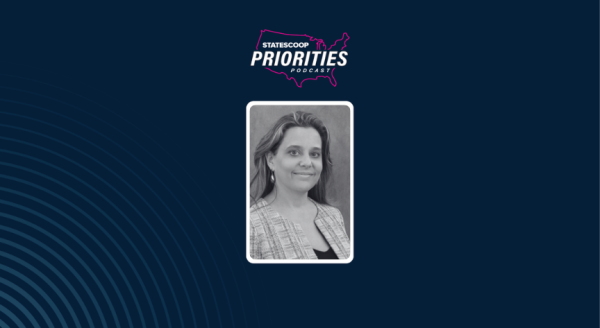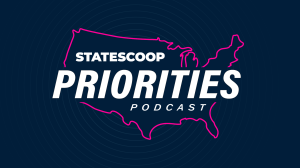
States look to ‘citizen as a platform’ for data management
Efforts to build a better citizen experience through the use technology are dominating government IT conversations. For citizen experience in North Dakota, the state’s chief information officer, Shawn Riley, says he’s focusing on data management.
“We are building, basically, a universal data platform,” Shawn Riley says on the latest episode of StateScoop’s Priorities podcast. “With that comes a focus to move [toward] the citizen as a platform.”
In North Dakota, “citizen as a platform” means putting the citizen at the center of all data access by giving them the power to manage their data.
“[We are] giving them the capacity to be able to access their data, to be able to manage the security of that data and then be able to get to — comprehensively — the entire package of services that government offers for them,” Riley says.
That effort falls squarely under one of Riley’s key initiatives as CIO. He calls it “empowering people, improving lives and inspiring success.”
In Texas, says statewide data coordinator Ed Kelly, the moniker is not “citizen as a platform,” but rather “my government, my way.” That initiative is currently in its pilot phase, he says.
“[My government, my way] allows agencies to normalize their information around the customer and to effectively offer up — through a single platform — a mechanism for a constituent to interact with their state government in multiple ways,” Kelly says on the podcast.
Red Hat‘s Bill Hirsch says some states have been able to take the momentum initially generated through their open-data programs and channel it into action for data management and analytics efforts.
“I think that has done wonders for opening up that data not just to state employees, but also to the constituents, to researchers, to universities and students, et cetera,” Hirsch says. “Step one is gathering that [data] up but then presenting it and opening it up is what I think really encourages a lot of the innovation around the data.”
On the podcast:
- Shawn Riley, chief information officer, North Dakota
- Ed Kelly, statewide data coordinator, Texas
- Bill Hirsch, principal solutions architect, Red Hat
- Jake Williams, associate publisher, StateScoop
Things to listen for:
- States still face big challenges with budgeting, as well as workforce when it comes to data management and analytics, Kelly says.
- “Technology is easy, people and process are hard,” Riley says about how to manage workforce challenges. In North Dakota, the state is investing and looking into tools like artificial intelligence and machine learning to supplement its workforce gap.
- In the private sector, Red Hat is focusing on people and processes, in addition to technology, to help its customers overcome those challenges.
- Data management and analytics drive assets like drones, which can help keep workers with dangerous jobs safe, such as those working with high-voltage wires, Hirsch says.
- North Dakota is rolling out a statewide beyond-visual-line-of-sight-radar system for drones. Riley says the state will be one of the first to implement the system, which relies heavily on data.
Produced in partnership with the National Association of State Chief Information Officers, Priorities dives deep into each of the top 10 priorities of state CIOs outlined in NASCIO’s annual list. This episode is brought to you by Red Hat.
Listen to archived episodes of Priorities from Season 4 (2019), Season 3 (2018), Season 2 (2017) and Season 1 (2016). Catch all of StateScoop’s podcasts on Soundcloud, Apple Podcasts, Spotify, Google Play, Stitcher or Alexa’s TuneIn.

